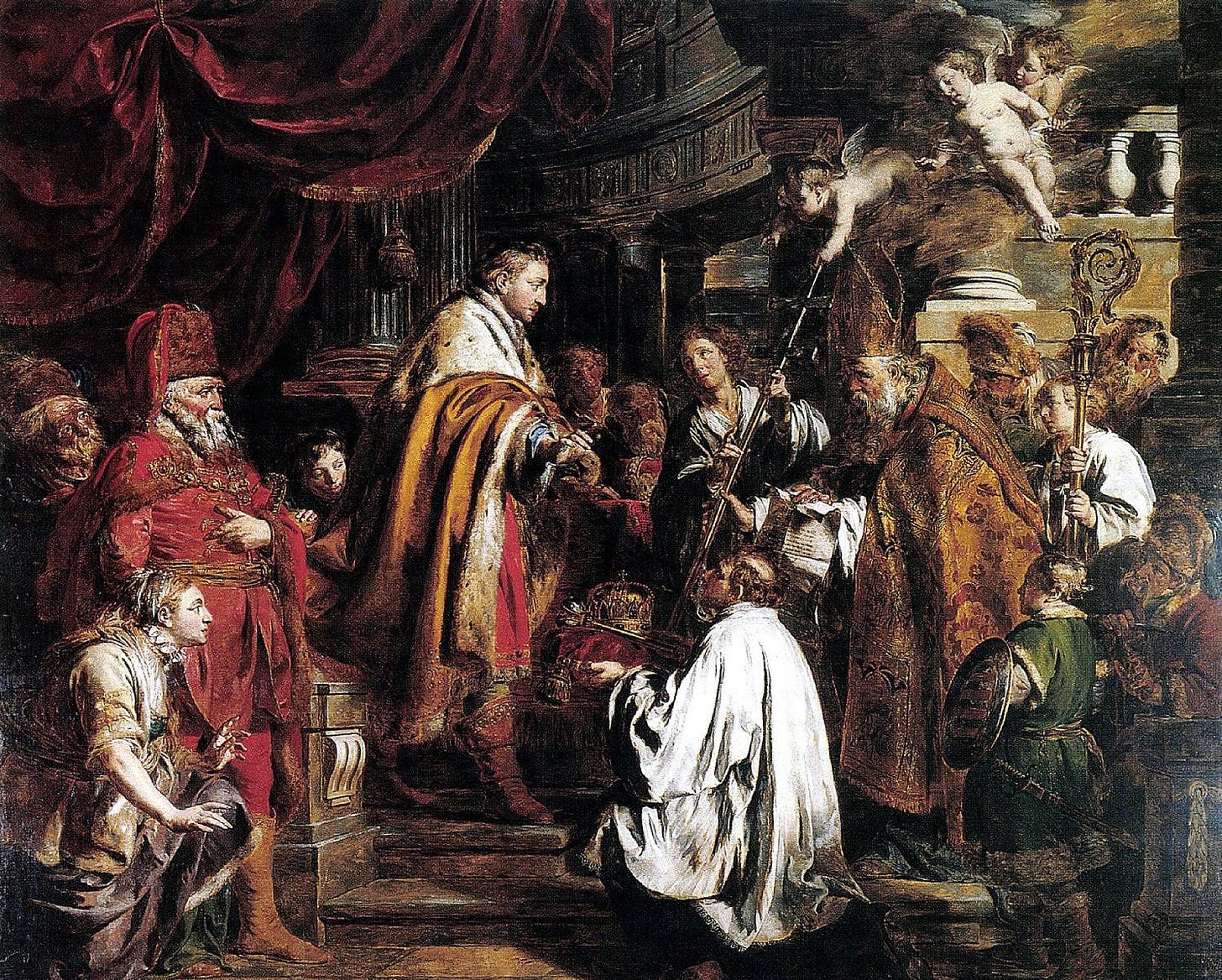Today in History: January 1-3
The Haitian Revolution, Reconquista, and Tokugawa Shogunate all end, and more!
Happy New Year, and best wishes to all of you for a happy and prosperous 2021! I probably could have done this last time, but I wanted to take this opportunity to thank all of you for sticking with or signing up for Foreign Exchanges over the past year. This newsletter surpassed all expectations in terms of growth in 2020 and that’s all because of you fine folks. Without you FX wouldn’t be possible—so again, thank you! I look forward to continuing to grow FX along with you in the coming year!
If you’re reading this and aren’t on FX’s mailing list, please sign up for free today or become a paid subscriber and help support the newsletter:
Today marks the end of my holiday break, but it will be a few more days before we return to regular programming. There are a number of things behind the scenes that I just haven’t had much chance to address lately so I’m going to take some time to get those squared away before we dive back into the thick of things. Thanks for reading!
January 1, 1001: As was the case with Christmas, January 1 has tended to be a popular day for crowning monarchs. There are way too many of those to list here, and anyway most of them turned out to be fairly unimportant. One that was relatively significant was the crowning of Stephen I, the very first king of Hungary. Stephen had been ruling Hungary since 997, but prior to 1001 the ruler of Hungary went by the title “Grand Prince of the Hungarians,” reflecting the fact that they were elected by (and subject to, at least to some degree) the Hungarian nobility. Stephen sought the title of king both to demonstrate his authority over the nobles and to put him on par with other national leaders in Europe. Because he was technically its first king, Stephen can be, and often is, regarded as a/the founder of modern Hungary. On top of being king he was also venerated as a holy man, leading to his canonization by Pope Gregory VII in 1083. The Orthodox Church recognized his sainthood relatively recently, in 2000.

January 1, 1801: The Acts of Union, parallel bills passed in the British and Irish parliaments the previous summer, come into effect, creating the United Kingdom of Great Britain and Ireland. The Irish and English crowns had been in personal union since 1542, when the Crown of Ireland Act elevated the Lordship of Ireland into a full Kingship, and that personal union continued when the English crown became the British crown after the 1707 Act of Union merged England and Scotland. So the 1800 Acts of Union merged two kingdoms that were already ruled by the same person. The 1919-1921 Irish War of Independence ended the union for most of Ireland and is the reason why it’s now the United Kingdom of Great Britain and Northern Ireland.
January 1, 1804: The Haitian Revolution ends when new President Jean-Jacques Dessalines declares Haiti’s independence from France. As with royal coronations, January 1 has also been a popular date for national independence days. In addition to Haiti, this is also Independence Day for Brunei (1984, from the UK), Cameroon (1960, from France and the UK), and Sudan (1956, from Egypt and the UK).
January 2, 1492: The “Reconquista” ends with the formal surrender of the Emirate of Granada to Ferdinand II of Aragon and Isabella I of Castile.
January 2, 1963: Despite being outnumbered roughly five to one, a unit of around 350 Việt Cộng fighters defeats a joint South Vietnamese-US force at the Battle of Ấp Bắc in South Vietnam’s Định Tường province, withdrawing only when it began to run out of ammunition. The battle was the first VC victory in a pitched battle against the South Vietnamese military and as such was both a substantial morale boost to their war effort and a major embarrassment for the South Vietnamese government.
January 3, 1521: Pope Leo X issues a bull, titled Decet Romanum Pontificem, in which he excommunicates Martin Luther. Leo had threatened to excommunicate Luther in a bull issued the previous year that Luther made a show of burning in defiance. With the benefit of hindsight I think we can say that this whole incident didn’t go the way Leo expected that it would.
January 3, 1868: Japanese Emperor Meiji issues an edict declaring an end to the powerful Tokugawa Shogunate and a restoration of the authority of the emperor—marking the “Meiji Restoration.” Although the last Tokugawa Shōgun, Tokugawa Yoshinobu, had resigned in November 1867 it was this edict that really marked the political end of the shogunate and the establishment of a centralized imperial government. Tokugawa Yoshinobu would subsequently lead an unsuccessful rebellion against the Meiji Restoration that began in late January.
January 3, 1919: In the lead up to the Paris Peace Conference, Arab Revolt leader Faysal b. Hussein and Zionist activist Chaim Weizmann conclude an agreement under which Faysal agrees to support a Jewish homeland in Ottoman (soon to be British) Palestine while Weizmann agrees to support the creation and development of an Arab state under Faysal’s father, King Hussein of the Hejaz.


Of course, 1 January is also Federation Day in Australia, but most are too hungover to celebrate.